Search and rescue after Japan quake (Photos)
The 9.0-magnitude quake and ensuing 10-meter high tsunami that struck Japan made more than 350,000 people homeless.
Food, water, medicine and fuel are short in some parts, and low temperatures during Japan's winter are not helping.
Official tolls of dead and missing are rising steadily -- to 8,450 and 12,931 respectively on Monday.
They could jump dramatically since police said they believed more than 15,000 people had been killed in Miyagi prefecture, one of four that took the brunt of the tsunami.
Scores of nations have pledged aid to victims, but little is visible in many devastated towns and villages.
All we have had is the clothes on our backs. But they are good enough. They've kept us warm through all of this, said Machiko Kawahata as she, her daughter and granddaughter looked for clothes at a drop-off point in Kamaishi, a coastal town.
We will make do and we will make it through this.
While Japanese have been focused on the rescue operation rather than recriminations, media and others have raised questions over the government and plant operator Tokyo Electric Power Company's (TEPCO) performance.
Easing Japan's gloom briefly, local TV showed one moving survival tale: an 80-year-old woman and her 16-year-old grandson rescued from their damaged home after nine days.
The world's third largest economy has suffered an estimated $250 billion of damage with entire towns in the northeast obliterated in Japan's darkest moment since World War Two.
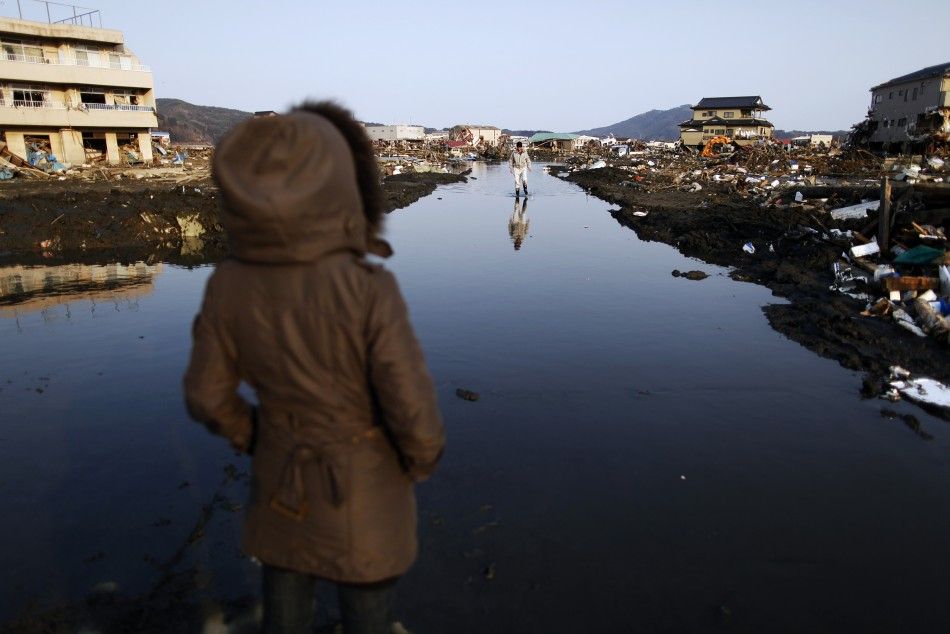
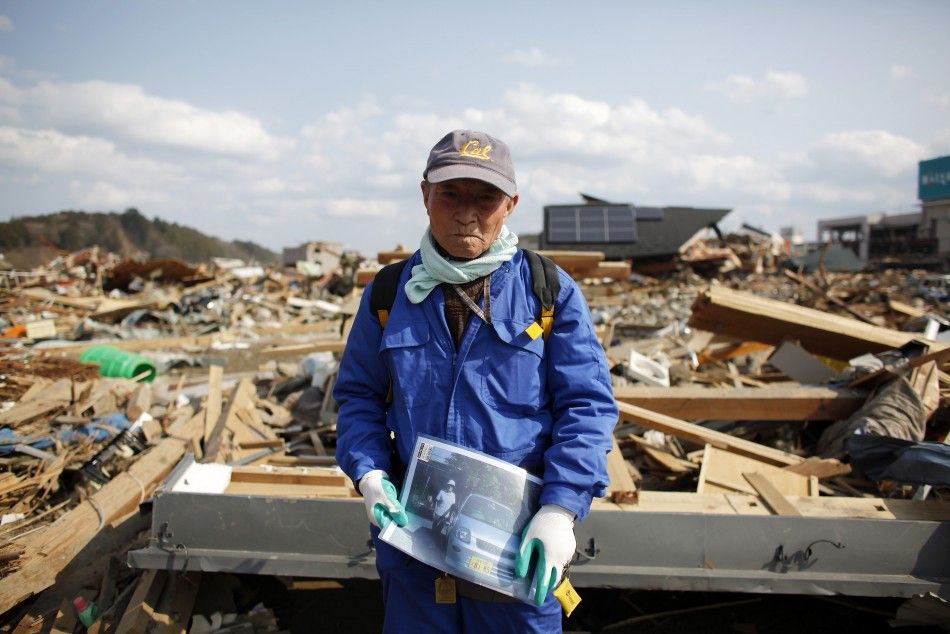
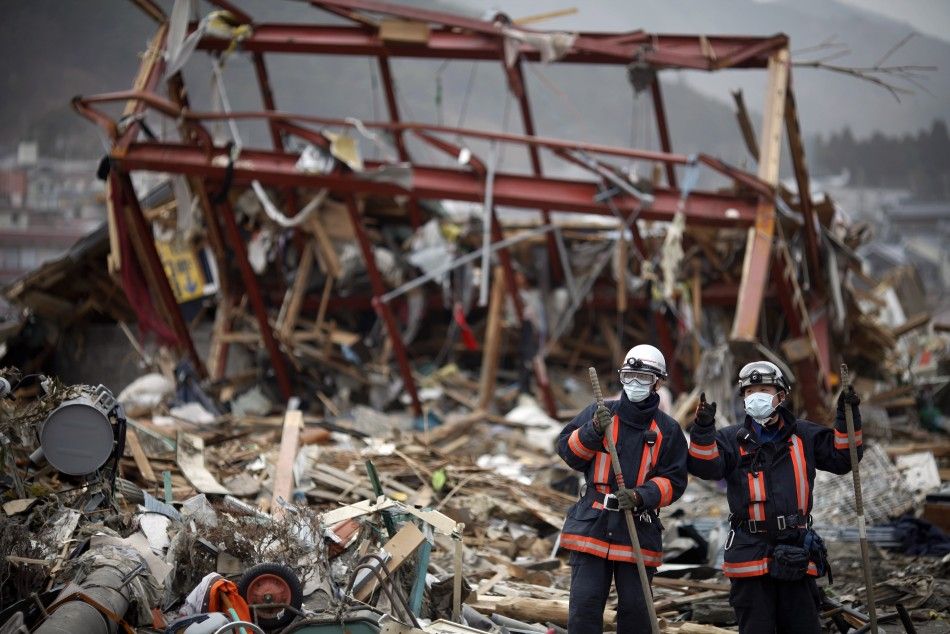
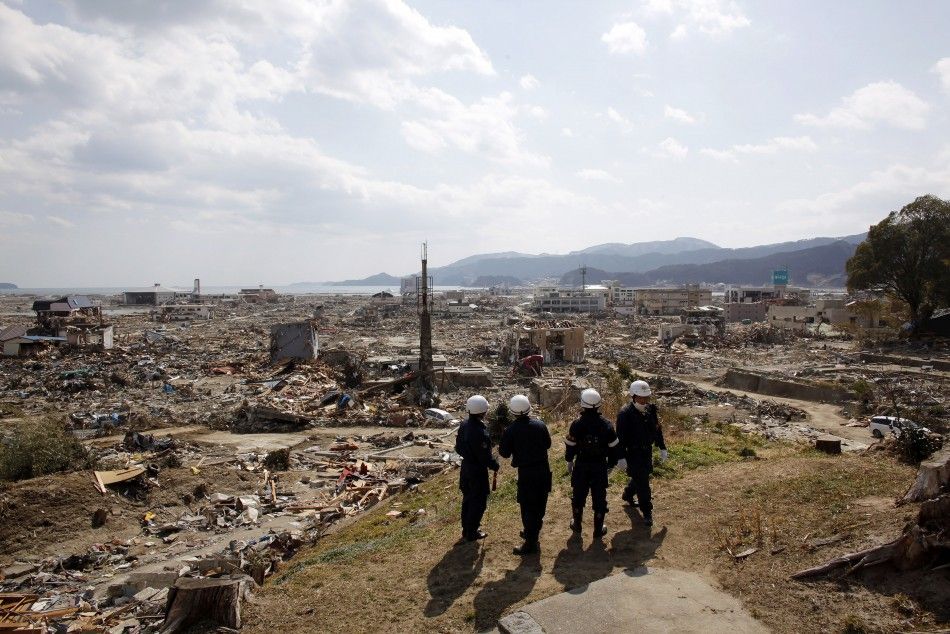
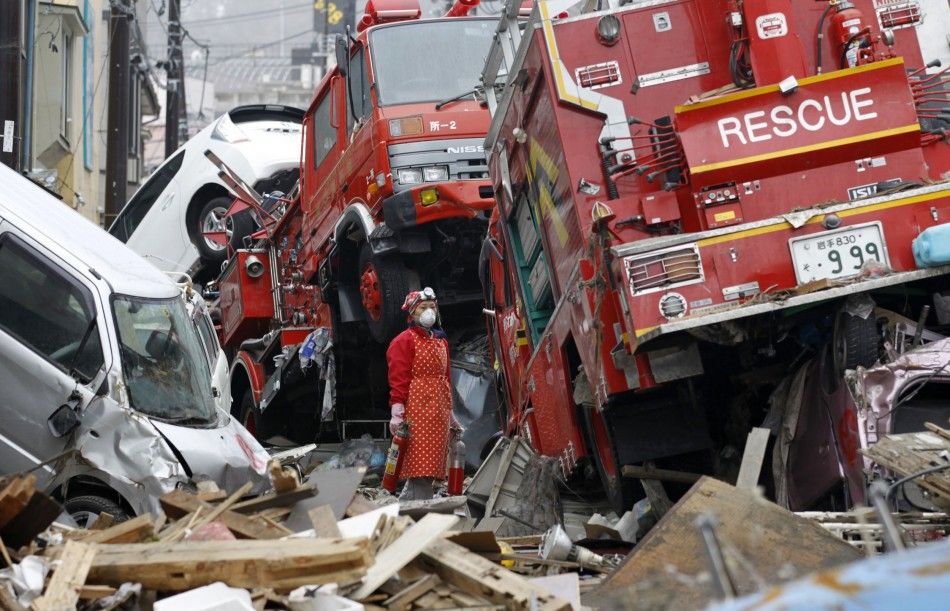
© Copyright IBTimes 2024. All rights reserved.











